SPEAKERS
Distinguished speakers at the Second International Symposium on Pediatric Renovascular Hypertension
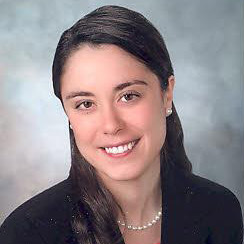
Dr. Ames
Dr. Ames completed her undergraduate degree at the University of Minnesota in Genetics, Cell Biology and Development. She then completed an MD/PhD at the University of Virginia. Her interest in genetics began during her PhD while studying RNA processing in fetal heart development. She then moved to the University of Michigan to complete a combined residency in both Pediatrics and Medical Genetics. After residency, she completed a fellowship in Medical Biochemical Genetics. She has remained at the University of Michigan as a clinical assistant professor in the departments of Pediatrics and Internal Medicine where she sees patients of all ages. Her clinical interests include RASopathies, neuromuscular conditions, and novel therapies for inborn errors of metabolism.

Catherine Amlie-LeFond
Professor of Neurology and Professor of Neurological Surgery at the University of Washington/Seattle Children’s Hospital and director of the Pediatric Vascular Neurology program.

Anne Marie Cahill, MBBch
Associate Professor of Radiology
Chief, Interventional Radiology
The Children’s Hospital of Philadelphia
Anne Marie Cahill, MBBch, received her medical degree from the University College Galway in Ireland. She currently serves as chief of interventional radiology at the Children’s Hospital of Philadelphia.
She has developed areas of focus within the field of pediatric interventionaI radiology, including, vascular malformation therapy, endovascular therapy of renovascular hypertension and venous thrombolysis.
Dr. Cahill co-directs a vascular malformation clinic at Children’s Hospital of Philadelphia together with Dr. David Low from the Division of Plastic Surgery. This specialty clinic, held monthly, sees a large volume of patient referrals both from local and regional sources. This is a unique state of the art program for the diagnosis and management of pediatric vascular malformations.
As a result of collaboration with all the specialties that manage vascular malformations at CHOP, Dr. Cahill has gained national and international recognition for interventional radiology therapy of vascular malformations. Treating children with complex vascular anomalies poses a great challenge for interventional radiology, yet is one of the most rewarding, she says.
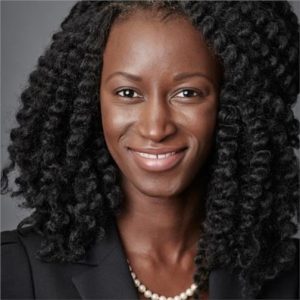
Fatou Ceesay, MPH
Fatou Ceesay, MPH, is a Program Officer for the Engagement Awards Program at the Patient-Centered Outcomes Research Institute (PCORI). Before PCORI, Ceesay was research coordinator for the Lagos, Nigeria-based African Tobacco Control Consortium, which promotes evidence-based tobacco control in sub-Saharan Africa. She also worked at the American Cancer Society’s Office of Health Disparities. At Capital Care, Inc., Ceesay coordinated health programs and services for individuals with disabilities, and chaired the human rights committee. Ceesay received a BS in biology from Georgia State University and a MPH in international health from Morehouse School of Medicine.
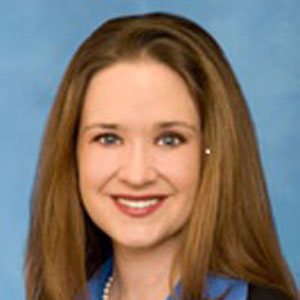
Dawn M. Coleman, MD
Handleman Research Professor
Associate Professor of Surgery and Pediatrics & Communicable Diseases
Program Director, Integrated Vascular Surgery Residency and Fellowship
University of Michigan Department of Surgery
Section of Vascular Surgery
Dawn M. Coleman, MD, is an Associate Professor of Surgery and Pediatrics & Communicable Disease at the University of Michigan, where she serves as the Program Director for the Integrated Vascular Residency Program and Fellowship. She graduated with honors from the University of Cincinnati in 1999 and earned her medical degree from the University of Cincinnati’s College of Medicine in 2003. She completed her general surgery residency at the University of Michigan in 2010 and then went on to complete a two-year vascular surgery fellowship at the same institution in 2012.
Dr. Coleman’s clinical interests include the surgical and endovascular management of aneurysmal and occlusive thoracoabdominal aortic and mesenteric vascular disease, and the surgical revascularization of pediatric aortic coarctation and renovascular hypertension. She is the co-director of the University of Michigan’s Renovascular Hypertension Center, and works closely alongside a multidisciplinary group to care for these unique patients.
Her longstanding interest in the management children with developmental aortic coarctation and renovascular hypertension has fueled ongoing translational research interests that focus on the genetic basis of pediatric renovascular hypertension resulting from developmental arterial dysplasia.
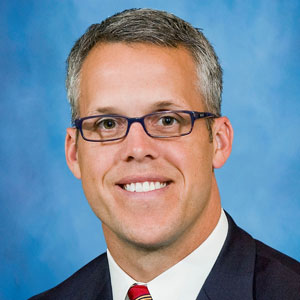
Jonathan Eliason, MD
Associate Professor of Vascular Surgery, Department of Surgery
Dr. Eliason is the S. Martin Lindenauer Collegiate Professor of Vascular Surgery. He is the 2004 graduate of the vascular fellowship program at the University of Michigan, after which he served as an active duty vascular surgeon in the United States Air Force. He completed one overseas deployment to Balad, Iraq in the 2006-2007 timeframe under Operation Iraqi Freedom.
In 2007, Dr. Eliason returned to the University of Michigan as faculty, where he has focused clinically on open and minimally invasive aortic surgery and pediatric vascular surgery. He has maintained an active research laboratory collaborating with the Department of Defense for the management of non-compressible torso hemorrhage in trauma, and is pursuing basic science research evaluating the effects of tobacco cigarettes and electronic cigarettes on vascular biology and aortic aneurysms.
Dr. Eliason is the immediate Past-President of the Vascular and Endovascular Surgery Society (VESS) and serves in leadership roles at Michigan Medicine as the Co-Director of the Frankel-CVC Multidisciplinary Aortic Program, the Medical Director of the Frankel-CVC’s 5th Floor, and as the Co-Director of the Diagnostic Vascular Unit.
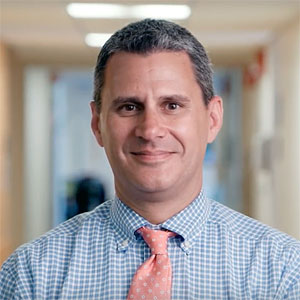
Michael Ferguson, MD
Assistant Professor, Pediatrics, Harvard Medical School
Dr. Ferguson is an Assistant Professor in Pediatrics at Harvard Medical School and an Assistant in Medicine in the Division of Nephrology at Boston Children’s Hospital, where he currently serves as Director of the Renal Hypertension Program and Co-Director of the Center for Midaortic Syndrome and Renovascular Hypertension. In addition to hypertension, Dr. Ferguson’s clinical interests include acute kidney injury, chronic kidney disease, and renal transplantation. He also has a strong interest in medical education and is the Director of the Pediatric Nephrology Fellowship Program.
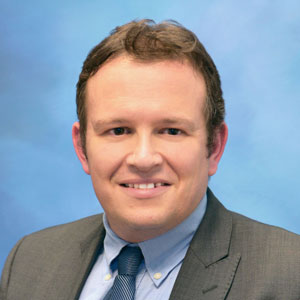
C. Alberto Figueroa, PhD
Edward B. Diethrich MD Professor in Biomedical Engineering and Vascular Surgery
Dr. Figueroa received his PhD in Mechanical Engineering at Stanford University, where he developed computational methods fluid structure interaction simulation of hemodynamics.
His first academic appointment was a King’s College London in the UK, where he was Senior Lecturer in the Division of Biomedical Engineering and Imaging Sciences.
Dr. Figueroa is currently the Edward B. Diethrich M.D. Professor in Biomedical Engineering and Vascular Surgery at the University of Michigan. His laboratory is focused on three main areas: 1) developing tools for advanced modeling of blood flow. His group develops the modeling software CRIMSON (www.crimson.software); 2) studying the link between abnormal biomechanical stimuli and cardiovascular diseases such as hypertension and thrombosis; 3) simulation-based surgical planning to aid with the optimal planning of cardiovascular surgeries.

Joseph Flynn, MD, MS
Dr. Joseph Flynn is the Dr. Robert O. Hickman Endowed Chair in Pediatric Nephrology, Professor of Pediatrics, University of Washington, and Chief, Division of Nephrology, Seattle Children’s Hospital. He completed his pediatric nephrology training at St. Christopher’s Hospital for Children in Philadelphia, PA, and later received an MS in Clinical Research from the Albert Einstein College of Medicine, Bronx, NY. During his fellowship training, Dr. Flynn obtained experience in clinical research under the guidance of Drs. Bruce Kaiser and Jorge Baluarte and worked in the laboratory of Dr. Bonita Falkner at the Medical College of Pennsylvania. He is an internationally recognized expert in the treatment of hypertension in children, and recently chaired the American Academy of Pediatrics Subcommittee that developed the updated clinical practice guideline on high blood pressure in children and adolescents.
Dr. Flynn served on the Council of the International Pediatric Nephrology Association from 2010-2019, and also on the Council of the American Society of Pediatric Nephrology, including 2 years as ASPN President (2012-14). He currently is a Board Member of the Renal Physicians Association and a member of the Nephrology sub-board of the American Board of Pediatrics. In addition to these activities, Dr. Flynn has published over 160 peer-reviewed papers and over 110 textbook chapters, invited reviews and editorials. He currently serves as one of the Editors-in-Chief of IPNA’s journal, Pediatric Nephrology. He has trained over 50 nephrology fellows, most of whom have faculty appointments at academic institutions, and several who currently hold leadership positions within various pediatric nephrology organizations.

Santhi K. Ganesh, MD
Associate Professor – Division of Cardiovascular Medicine, Department of Internal Medicine and Department of Human Genetics.
Dr. Ganesh studies the genetics of cardiovascular diseases and has an interest in both adult and pediatric arterial dysplasia phenotypes. She completed undergraduate and medical school at Northwestern University, after which she trained in Internal Medicine at the University of Michigan and Cardiology fellowship at Johns Hopkins School of Medicine and National Heart Lung and Blood Institute.
Dr. Ganesh completed her postdoctoral research training at the National Heart, Lung and Blood Institute, National Human Genome Research Institute and Johns Hopkins Institute of Genetic Medicine, focused on mechanisms of arterial remodeling and gene discovery for hypertension and other cardiovascular traits and diseases.
Her laboratory at the University of Michigan employs genetic and genomic analysis methods to discover genes and study mechanisms of arterial fibroplasia.

Dr. Elisabeth Krimbill
Dr. Elisabeth Krimbill is an Assistant Professor at Texas A&M University-San Antonio in the Education Leadership Program. This program prepares the next generation of school principals and district leaders. Her research focuses primarily on law and ethics, school culture, counseling, and child development. She serves on the Board of Directors for the Education Law Association and is a member of the leadership team of the Law and Education Special Interest Group of the American Education Research Association.
As a dedicated community volunteer, Dr Krimbill works with several non-profit organizations in San Antonio and the surrounding area. These organizations are committed to serving youth and families to improve educational and health outcomes and enhance their quality of life. In 2015 Dr. Krimbill was honored with the Howard A. Britton Patient Advocacy Award from the Patient Institute for her work, “We Can: A Teacher’s Guide to Medically Fragile Children in the Classroom.”
With years of experience as a classroom teacher and school principal, and additional training in counseling and instructional technology, Dr. Krimbill is now focusing her efforts on improving professional development and learning experiences for teachers and future school leaders at a local, national, and international level.
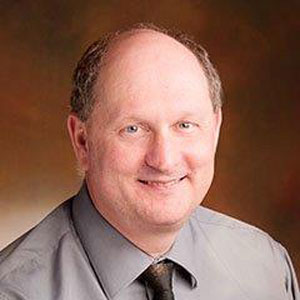
Kevin E. Meyers, MD
Professor of Pediatrics
Assistant Division Chief of Nephrology, Department of Pediatrics
The Children’s Hospital of Philadelphia and University of Pennsylvania
Dr. Meyers is an Attending physician in the Division Nephrology at the Children’s Hospital of Philadelphia (CHOP) and Professor of Pediatrics at the Perelman School of Medicine at the University of Pennsylvania (UPENN). He has worked at CHOP/UPENN since 1994.
In addition to serving as Associate Division Chief of Nephrology, Dr. Meyers directs the Division of Nephrology Clinical Services, is the long-time Nephrology Fellowship Training Program Director, and heads the Humanism Program at CHOP. He also has a long-standing interest and commitment to medical education.
Dr. Meyers directs the hypertension (HTN) program and the complex HTN clinic that aims to reduce the risk of cardiovascular disease in children with secondary causes of HTN (CKD, ESKD, TXP, RVHTN etc.). He also works with a dedicated team caring for children and adolescents with Lupus/MCTD.
His research addresses ways to help improve outcomes in children with chronic glomerular disease including nephrotic syndrome and hypertension. He has a particular interest in RVHTN.
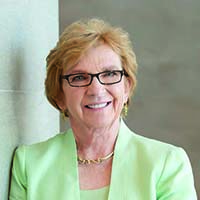
Terry Monkaba, MBA
Terry Monkaba, MBA received her undergraduate degree in Sociology from Rutgers University and her Master’s degree in Business Administration from Oakland University. Following ten years, as a corporate photographer for a major defense contractor, and the birth of her son Ben, who has Williams syndrome, she began volunteering for the Williams Syndrome Association. Terry has been working with the WSA since 1990, serving as regional director, Board member, Board President and since 1995, Executive Director (retired in August 2022). During her time with the WSA, she had the privilege of helping to grow the Association from a small parent-run support group to a thriving non-profit with a $1.5M budget, supporting more than 6000 families nationwide and countless others around the world through social media.
Ms. Monkaba has also served as Treasurer on the Boards of both the FAR Conservatory of Therapeutic Arts and Very Special Arts, Michigan, and is a member of the Professional Advisory Board of the Berkshire Hills Music Academy.

Rulan S. Parekh MD, MS, FRCP(C), FASN
Dr. Rulan Parekh is Associate Chief, Clinical Research, SeniorScientist at the Hospital for Sick Children and University Health Network, and Division Director of Nephrology, Professor of Pediatrics and Medicine in the Departments of Pediatrics, Medicine, Epidemiology at the University of Toronto.
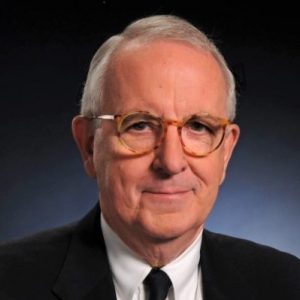
James C. Stanley, MD
James C. Stanley, MD, is an active Professor Emeritus of Surgery at the University of Michigan, where he was the Head of the Vascular Surgery Section (1976-2004) and a founding Director of the University’s Cardiovascular Center (2003-2014). He had an extensive clinical practice with a major focus on complex aortic disease, pediatric and adult renovascular hypertension, and splanchnic aneurysmal disease. He has had a lifelong interest in vessel pathobiology and was the Director of the Jobst Vascular Research Laboratories (1989-2004).
Dr. Stanley has given more than 700 presentations before clinical and academic societies in the United States and abroad. He was editor of the Journal of Vascular Surgery (1991-1996), and he has authored more than 550 scientific articles and textbook chapters, and edited 15 medical textbooks, including two on renovascular hypertension. He has recently published three personal books: “Coming of Age in Two College Towns”, “Expressions of an Academic Surgeon”, and ”Choices. A Surgeon’s Memoir”.

Kjell Tullus, MD, PhD, FRCPCH
Dr Tullus is a consultant Paediatric Nephrologist at Great Ormond Street Hospital for Children in London.
He graduated at the Karolinska Institute, Stockholm and took his medical training in Stockholm, Sweden where he also made his PhD. He worked as a Paediatrician and Paediatric Nephrologist in Sweden, close to thirty years and in London since 2002.
His main clinical interests are inflammatory diseases like lupus and renal vasculitis, hypertension and UTI. He has tutored five PhD students and authored more than 250 scientific papers and reviews.
